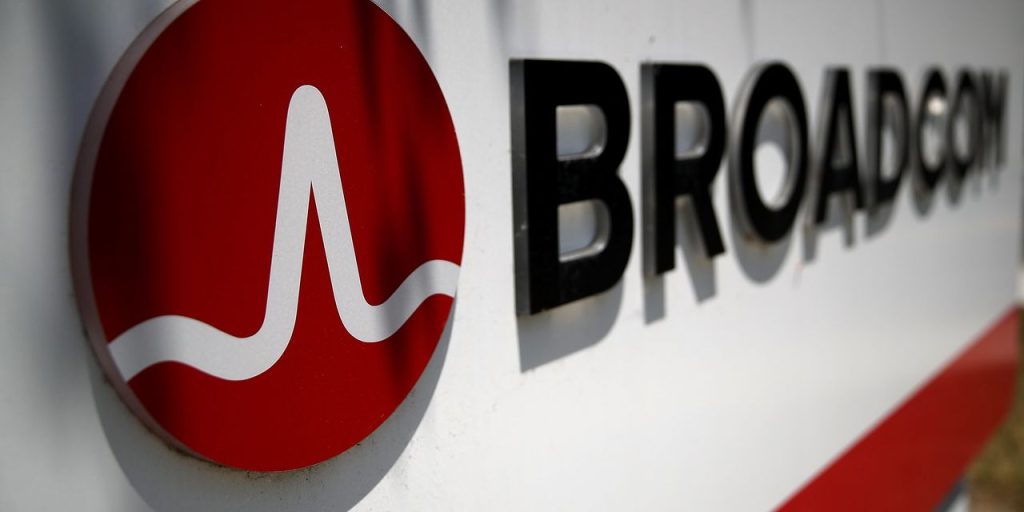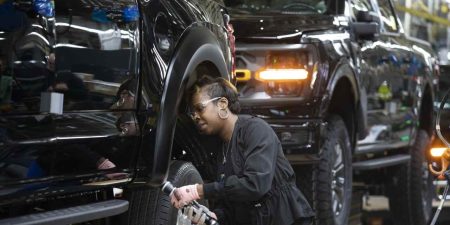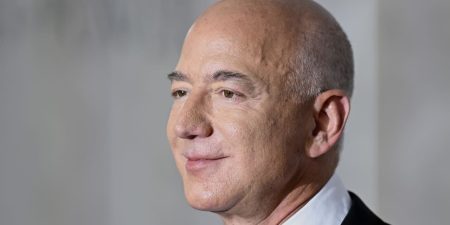As Broadcom Inc. and VMware Inc. get closer to their new merger deadline of Nov. 26, some investors are nervous that the deal will not get done, with a $1.5 billion termination fee hanging over the chip maker.
China is reportedly the cause for the current hold-up for the deal, which was supposed to close by Oct. 30. The Chinese government has not signed off on the acquisition, now valued at nearly $70 billion, which would become one of tech’s biggest mergers ever if it is completed.
While the delay of the massive deal, first announced in May 2022, has hurt VMware’s shares
VMW,
it has not hurt Broadcom
AVGO,
Last week, Broadcom closed at an all-time high of $957.52 and the stock is on track for its best year since 2014, having soared nearly 70% in 2023. And its shares have risen over the past two weeks despite the deal’s delay. The companies said in an update on Oct. 30 that they expect the merger to close before the November termination date. Neither Broadcom nor VMware responded to requests for comment.
“I think [Broadcom’s] stock has risen more on the AI story than on VMware,” said Bernstein Research analyst Stacy Rasgon, who added that he hopes the deal goes through, because it fits with Broadcom’s software strategy.
In August, Broadcom Chief Executive Hock Tan said 15% of the company’s semiconductor revenue came from AI, and that would rise to 25% in 2024.
A big part of its AI revenue comes from developing Google’s tensor processing units (TPUs). Broadcom shares did get hit in September over a report by The Information that said Alphabet
GOOG,
GOOGL,
was looking at designing those chips in-house and discussed making the move as soon as 2027. TPUs enable high-bandwidth, high-speed data transfer, which is important for AI operations, Rasgon said.
Both Rasgon and Angelo Zino, an analyst CFRA Research, said that after Nvidia Corp.
NVDA,
Broadcom has shown the clearest signs of revenue recognition from generative AI. “Thus those have been among the two best performers within the chip space,” Zino said in an email.
Rasgon said that according to his estimates, after Broadcom completes its work getting rid of redundancies post-merger, he sees VMware adding 20% to the combined company’s earnings.
With President Joe Biden’s anticipated meeting this week with Chinese President Xi Jinping at the APEC summit in San Francisco, investors are again focused on the souring relationship between the U.S. and China, in which semiconductors have become a big sticking point. Last month, the U.S. tightened restrictions on China’s ability to buy advanced semiconductors, leading Nvidia to redevelop new chips for China.
“I don’t expect any big announcements or any new initiatives coming out” of the Biden-Xi meeting, said Owen Tedford, senior research analyst at Beacon Policy Advisors. “I think the focus will be on making the meeting positive, so everyone walks away feeling good.” Tedford said the Broadcom-VMware deal is not a needle mover that would likely be brought up in any discussions between the two world leaders.
Read also: White House hopes Biden-Xi meeting at APEC will bring progress on military communications, fentanyl fight
“Maybe there is a general remark about wanting a better environment for U.S. business and making sure they aren’t harassed. But it’s not popular to encourage American business to go to China. In some ways this works in their favor. I don’t think they will fight it that hard,” Tedford said.
Zino said he currently gives the deal about a two-thirds chance of going through at this point. “It is theoretically possible that Broadcom looks to get the deal done without China’s approval, if Hock Tan believes the cost synergies make enough sense,” he added.
The $1.5 billion termination fee is not chump change, but Broadcom ended the third quarter with $12.1 billion in cash, and $39.3 billion in gross debt. Even so, it’s not a fee Broadcom would relish paying. And Tan has been speaking publicly about the deal, including an appearance in August at VMware’s user conference, where he said he would spend an additional $2 billion in research and development and the deployment of VMware’s solutions.
If the deal does not end up getting completed, the biggest losers will probably be VMware investors. But Broadcom investors, buffered by the company’s increasingly lucrative AI business, should be just fine.
Read the full article here















